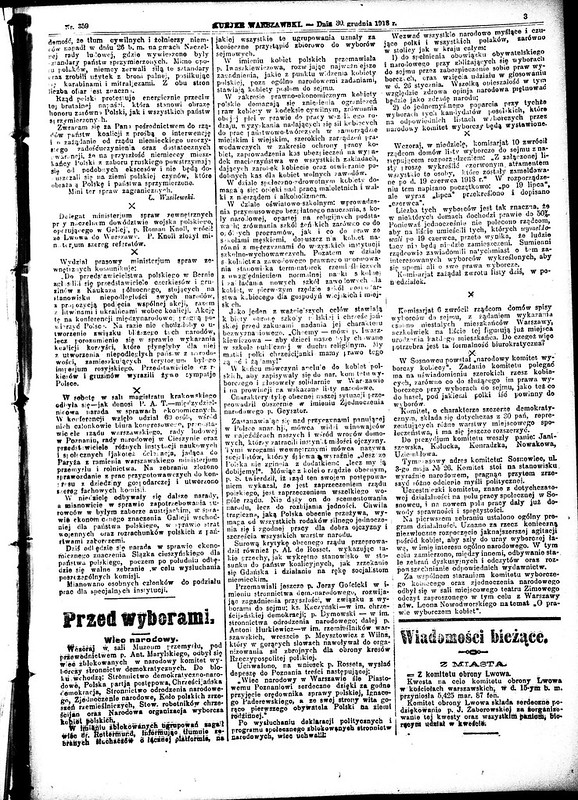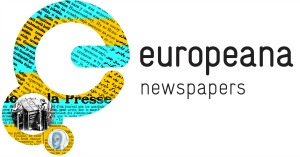The European Library aggregated 116 titles and 15,112 issues of historical newspapers from the National Library of Poland (NLP) . We asked Paulina Błaszczykiewicz from the NLP to highlight one newspaper article that is now available at the Europeana Newspaper Browser. Paulina chose an article about women’s voting rights in Poland.
The highlighted article is available here in the Europeana Newspapers Browser and here in POLONA, the digital library of the NLP. All newly aggregated content from the NLP available here.

What does the title say?
„Before the election”
What newspaper is this article from?
The article is from „Kurier Warszawski”, which was the main informational daily newspaper in Warsaw, with a large section of advertisements (mainly small ads).
What day is this article from?
The article is from the morning edition of December 30th 1919.
On what page was the article printed?
The article is printed on the 3rd page. The main news on the front page is about Ignacy Paderewski visiting Warsaw after leaving Poznań , where he was giving a public speech for polish inhabitants. The note gives information about the organization of the future prime minister’s arrival – all those who want to welcome Paderewski should gather in line all along his way from the train station to Bristol Hotel, the front windows of the buildings will be illuminated and the balconies dressed with national flags.
Did the article report the event as we know it from history books?
In Poland, women had their voting rights guaranteed by a decree signed by marshal Piłsudski 28th November 1918. The first free elections (called “five-adjectives elections” – universal, direct, equal, proportional, anonymous) in which they were entitled both to vote and to hold office took place January 26th 1919 (last Sunday of January).
Apart from one newspaper (“Na posterunku” unfortunately not in the NLP collection) dedicated to women in politics and social life, I haven’t found any article about the subject on the front page. It seems the position of Poland in the national area seemed generally more important than the internal politics.
Does the article prevail any political view of the time?
The article talks about Mrs. Iwaszkiewiczowa’s representing Narodowa Organizacja Wyboracza Kobiet Polskich (National Electoral Organization of Polish Women) speech during the pre-election convent of the democtrats (Komitet wyborczy stronnictw demokratycznych).
Her postulats for the new sejm (lower house of polish parliament) are:
- equality of right guaranteed by the civil code
- equality in work (also in national and local government)
- organizing of special found for mothers in institutions where women are hired
- special care for minor workers, fight with prostitution and alcoholism
- obligatory and free schools (both for women and men), the program should be based on religious and patriotic principles
The relation mentions also that the speakers encouraged women to vote and to stand for the election themselves.
In the election in 1919 women had their representation in all political parties. The 8 elected also represented different political background but their programs focused mainly on social issues.
Do you want to say something else about this article or newspaper?
During my research concerning the attitude towards women’s voting rights in polish historical newspapers I found it interesting that while the English suffrage movement is criticized and ridiculed the voting rights for women in Poland are treated as a natural part of new legislative in the independent country. Even in satirical newspapers the issue is rather mentioned than criticized.

Pingback: news | BBC2
Pingback: 10 milionów stron europejskich gazet wkrótce w wersji pełnotekstowej - Historia i Media
Pingback: 10 milionów stron europejskich gazet wkrótce w wersji pełnotekstowej
Hey i just found a polish news paper from 1782 what do i do with it